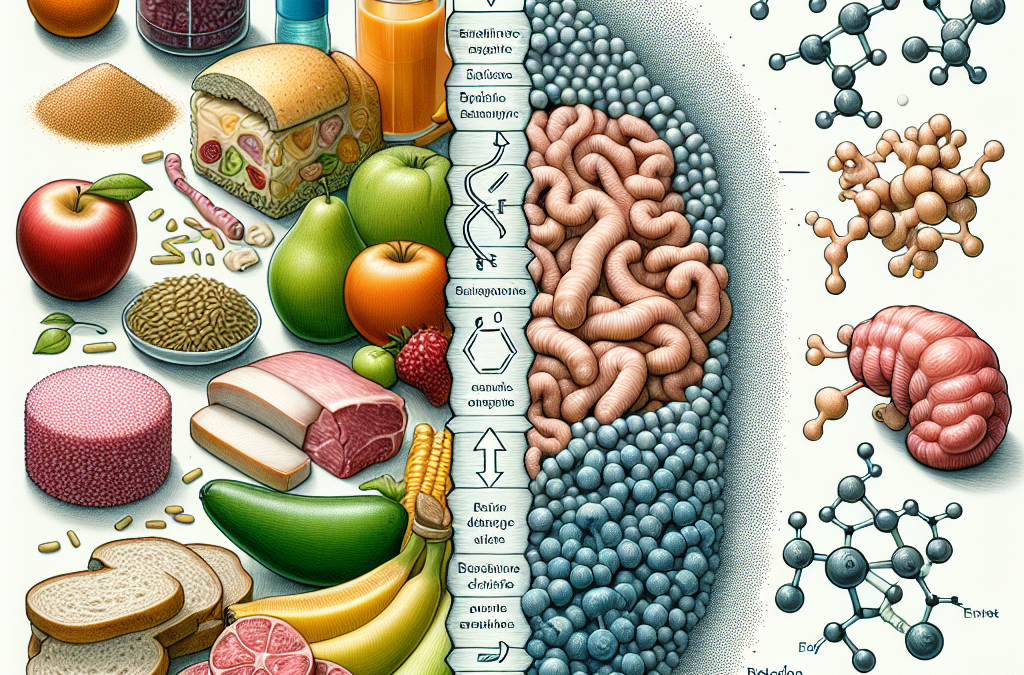Understanding What Enzymes Are
Defining Enzymes
Alright, so here’s the scoop: enzymes are these incredible catalysts that speed up biochemical reactions in our bodies. Think of them like little workers that make everything run smoothly. Without enzymes, we’d be totally stuck digesting our food, among a million other things!
Each enzyme has a specific job. For instance, some enzymes break down carbohydrates while others tackle proteins or fats. It’s like having a dedicated team for each type of food, making sure everything gets processed properly. When you get into the nitty-gritty of it, you realize just how vital they are for our overall nutrition.
What’s even cooler? These enzymes are made up of proteins themselves. They require specific conditions—like the perfect pH and temperature—to function optimally. So, when we talk about diet and health, enzymes should definitely be on our radar!
How Enzymes Aid Digestion
The Digestion Process
Let’s dive into digestion for a sec. When we munch on food, our digestive system gets to work, and enzymes are major players in this action. They start breaking down those big molecules into smaller, absorbable pieces right from the get-go—specifically in our mouths with salivary enzymes.
Once the food hits the stomach, there’s a whole new round of enzymes ready to play ball. These little guys help break down food into nutrients that enter our bloodstream, where they fuel our bodies. Without enzymes, we’re looking at a world of digestive discomfort and nutrient deficiency.
Interestingly, both the pancreas and the small intestine churn out various enzymes that continue this vital work. It’s a team effort, and every enzyme has a role to play, showing how complex and beautiful our bodies are in processing what we eat!
Enzymes and Nutrient Absorption
The Role of Nutrient Breakdown
Okay, so now, let’s chat about how enzymes help with nutrient absorption. Ever heard the phrase “you are what you eat”? Well, technically, it’s more about what you absorb! Enzymes are crucial here because they’re the ones that break down food into forms that our bodies can use.
Imagine trying to fit a giant piece of furniture through a tiny door. It’s just not gonna happen! The same goes for nutrients. Enzymes reduce those food particles into tiny workable pieces that can pass through the intestinal wall and into our bloodstream, making everything accessible.
Without this breakdown process, we’d just be wasting food. Our bodies would miss out on those essential nutrients, vitamins, and minerals that keep us healthy and energized. So, really, we owe our vitality to these tiny enzyme heroes!
Factors Affecting Enzyme Activity
Enzyme Conditions
Now, let’s get a bit scientific. Enzyme activity can be affected by numerous factors! For one, pH levels play a critical role; different enzymes thrive under different pH conditions. For example, your stomach enzymes work well in an acidic environment, while those in your small intestine prefer a more alkaline setting.
Get Certified Organic Whole Food Nutrition – Nutrient Dense Supplement
Temperature is another factor. Most enzymes have an optimal temperature range where they function best. Too hot or too cold can cause them to denature, which means they lose their shape and, therefore, their ability to do their job. Think of it like cooking—overcooked food can’t serve its purpose anymore!
Finally, the concentration of substrates (the molecules the enzymes act on) also matters. More is not always merrier, as too much can lead to competition and lower efficiency. Just like too many cooks in the kitchen, it can create a bit of chaos instead of a perfect meal!
Enzyme Supplements and Their Benefits
Considering Enzyme Supplements
With all this in mind, you might wonder about enzyme supplements. They’re marketed as magic pills that can enhance digestion and nutrient absorption. While I think they can help, especially for folks with digestive issues, it’s essential to remember that they’re not a cure-all.
I’ve found that incorporating more whole foods into my diet, rich in natural enzymes—like pineapple or papaya—can be just as effective! That said, for those with specific conditions, enzyme supplements can provide a significant boost in breaking down certain types of food.
As with any supplement, it’s always best to consult with a healthcare provider before diving in. They can help guide you toward what might work best for your unique needs, ensuring you get the right support for your digestive health.
FAQs about The Role of Enzymes in Nutrition
1. What are enzymes?
Enzymes are proteins that act as catalysts in biochemical reactions, helping to break down food particles into absorbable nutrients in the digestive process.
2. How do enzymes aid in digestion?
Enzymes break down complex food molecules into simpler forms, facilitating nutrient absorption in the bloodstream and ensuring proper digestive processes.
3. Can enzymes affect nutrient absorption?
Absolutely! Enzymes are crucial for breaking down food into small enough particles for absorption, so without them, we wouldn’t get the nutrients we need from our diet.
4. What factors affect enzyme activity?
Enzyme activity can be influenced by pH levels, temperature, and the concentration of substrates. Each enzyme has specific conditions under which it performs best.
5. Are enzyme supplements beneficial?
Enzyme supplements can help with digestion, especially for individuals with enzyme deficiencies. However, it’s important to prioritize a diet rich in whole foods and consult a healthcare provider before using them.
Get Certified Organic Whole Food Nutrition – Nutrient Dense Supplement
Related Content
- Best Local Organic Fruit Baskets in Theresa, Wisconsin 53091
- Experience the Superior Health Benefits: Why Real Food Supplements Outperform Pills
- The Connection Between Soil Health and Nutrition
- The Benefits of Eating Nutrient Dense Foods
- 10 Effective Strategies for Organic Food and Brain Function in 2025





